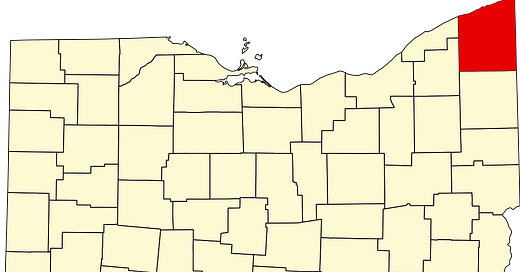Ohio state health officials report a measles outbreak in Ashtabula County and one confirmed case of a visitor in Knox County who exposed others to measles in Knox and nearby counties.
According to Ohio Department of Health (ODH) Director Bruce Vanderhoff, MD, MBA, said 10 measles cases have been identified in Ashtabula County. Nine are linked to an adult male reported last week as the state’s first measles case of 2025. None of the individuals were vaccinated.
ODH is working with health departments in Ashtabula and Knox counties to follow up on potential exposures and to promote opportunities for vaccination.
“Given the measles activity in Texas, New Mexico, and other states around the country, we’re disappointed but not surprised we now have several cases here in Ohio and known exposure in some counties,” said Dr. Vanderhoff. “This disease can be very serious, even deadly, but it is almost entirely avoidable by being properly vaccinated. Measles is especially dangerous for young children, so I strongly urge all parents across Ohio to make sure your children are vaccinated. It is a crucial layer of protection that can save lives.”
Ohio reported one measles case in 2023 and seven in 2024.
The Centers for Disease Control and Prevention (CDC) defines a measles outbreak as three or more related cases. Measles can spread quickly, and each case can lead to an additional 12 to 18 cases if people aren’t protected against the disease.
The measles vaccine (called MMR as it protects against measles, mumps and rubella) is safe and effective at preventing measles. Two doses of MMR is 97% effective against measles. If you are up to date on measles vaccine, the risk of getting sick is extremely low.
Subscribe to Outbreak News TV on YouTube
The CDC recommends all children get two doses of MMR vaccine, starting with the first dose at 12 through 15 months of age, and the second dose at 4 through 6 years of age.
In most instances, adults who were vaccinated against measles as children do not need any additional doses as adults. However, adults who did not receive the MMR vaccine as children or those who are unsure about their vaccination status are encouraged to talk to their healthcare provider for more information.
Those born prior to 1957 are likely protected by previous infection.





